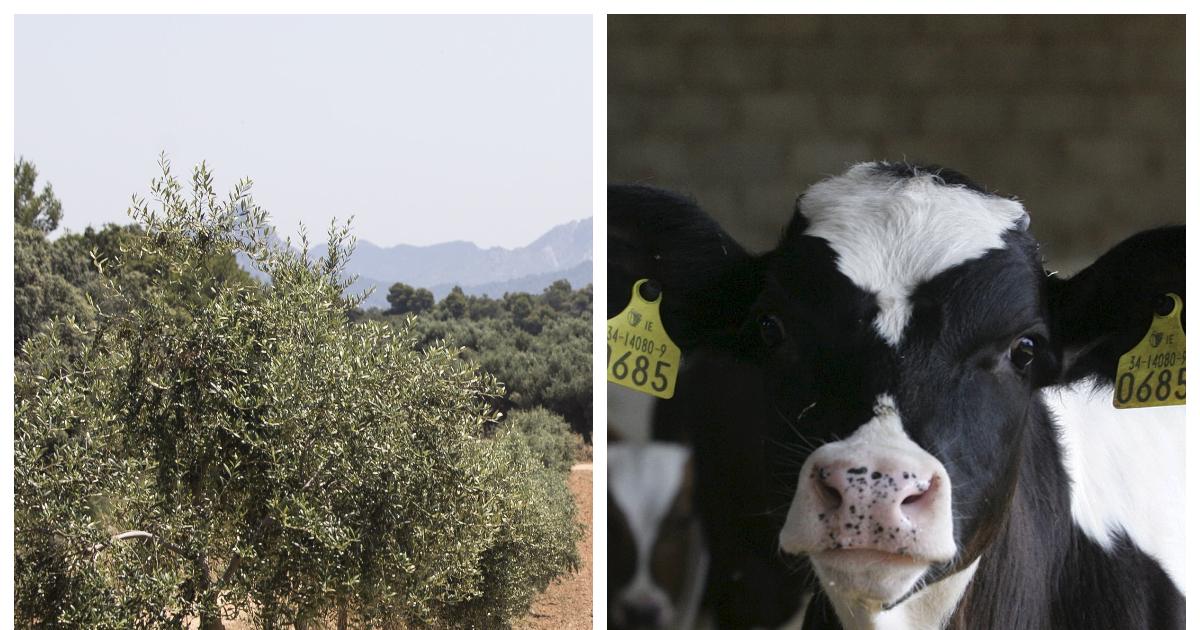The Aragonese Cluster of Agricultural and Livestock Production Means (Campag) sees digitization and care for the environment as the way forward to make the sector more competitive and adapt it to European requirements. For this purpose, the Campag, in collaboration with the partner companies Tatoma and BMC Agrícola, will develop two projects worth 300,000 euros focused on this green and digital transition. One of them seeks to innovate in agriculture precision in olive groves and dry almond trees, while the other aims to optimize the slurry composting in beef farms. Both were beneficiaries in this year’s call for grants to support cooperation actions of agents in the agricultural sector, within the framework of the PDR 2014-2020.
“These projects supported with public funding and focused on innovation help partners to regain, or not lose, competitiveness. This program, in particular, is very interesting because being focused on the agricultural sector they allows working hand in hand with the final customers of the machines they manufacture and to know in its development the needs of the clients “, explains Juan Manuel Castell, Cluster manager of the Campag.
Greater efficiency
The Precision Agriculture project in Olivar y Almendro de Secano (Apoyas) aims to develop a control system that allows a centrifugal fertilizer spreader with suspended discs to carry out fertilizer tasks in rainfed olive and almond plantations in an efficient and reducing the amount of fertilizer used between 40 and 60%.
“Precision agriculture continues to advance and develop. We know its extensive use, but no work had been done to adapt the technologies to the special characteristics of these crops. Now, we are going to apply it to fruit trees and crops as important in Aragon as olive and almond trees, and in dry farming mode, with an even larger surface area “, Castell points out.
In this way, work will be done to adapt the fertilizers to precision techniques for olive and almond trees. Thus, they will be able to identify where there is a tree and where there is not, or what its size is, and dose the fertilizer efficiently according to the characteristics of the tree. In addition, technologies will be implemented to obtain maps of the subscriber and the registration of that subscription. “The whole phytosanitary issue is very controlled and the next step marked from Europe is to control fertilization. In order to anticipate these requirements, we want prepare the machine to comply with regulations and make life easier for the farmer with automated tasks “Castell adds.
In Apoyas, in addition to Campag and BMC Agrícola, two agricultural cooperatives (the Virgen de los Pueyos and Borja), and the University of Zaragoza participate.
The second project, Cowcompost, aims to optimize the self-management of liquid manures from an intensive dairy cattle farm and improve the use of water. Likewise, it seeks to increase the quality of compost through analysis of different mixtures and their impact on the fertilization of agricultural soil. To do this, a machine capable of efficiently managing the industrial composting process for the quantities of manure produced on a 4,000 cow farm will be created and the environmental benefit will be evaluated by applying water and carbon footprint calculations. .
“By generating a large amount of slurry and manure, they need to resort to high-powered machinery and automate the processes of that machine as much as possible. analyze the water and carbon footprint and see how to improve the application of composting in agriculture and the lands they manage. It is a closed circuit management, with more than a thousand hectares in which they use fertilizers generated by their own exploitation “, details the cluster manager.
In addition to Campag and Tatoma, the San José Farm, the Itainnova and Circe technology centers, and Asaja Huesca collaborate in the Cowcompost project.
Green and digital transformation
On the other hand, the Cluster will launch, within the framework of aid from the Aragonese Development Institute (IAF) and in collaboration with Itainnova, the project Twin Transition, which will identify innovative initiatives to create a portfolio of projects related to green and digital transformation in partner companies for the next calls for aid. “A digital and sustainability audit will be carried out in which we will diagnose the strengths and weaknesses of the companies to see what are the common needs of all Cluster partners and to generate new transversal execution projects in the form of a consortium, bringing together the largest number of companies “, concludes Castell.
– .

